“Hope. It is the only thing stronger than fear. A little hope is effective. A lot of hope is dangerous.”
–President Snow, The Hunger Games
Since our two children were very young, the Friday night tradition in the Gardner household has been pizza and a movie. What began as two toddlers cuddling up on the sofa with their parents for an animated film before bed has turned into a tween daughter vetoing every suggestion her parents or younger brother put forth as ‘cringe.’
A notable exception recently was the first installment of The Hunger Games, which held everyone’s interest. This series appealed to my husband and son because of the action/adventure component, and my daughter was drawn to the assertive, confident Katniss Everdeen. I enjoyed rewatching this series with my family, and because of my work with RJIOK, President Snow’s comments on hope were especially intriguing.
At an RJIOK retreat in February, our team spent considerable time developing a consensus around this organization’s mission, vision, and values. Shenna got us started with a long list of words and a prompt: “You’ll define how successful you’ve been by using these words as your measuring stick.”
From there, individuals were asked to narrow the 200+ values down to our top five. Each team member spent time defining their values, why they were important, what they looked like in action, and what it felt like when they were missing. More than one person had ‘hope’ as a top five value for our organization, and after some deliberation, we decided to include the concept as part of our identity.
We aren’t the only Oklahoma-based institution with an interest in hope. Schools recognize its importance as part of safe and supportive learning environments. An entire research center at the University of Oklahoma is devoted to studying how believing in a better future benefits individuals, families, organizations, and communities.
The neurobiological evidence confirms that human hope lives in our brain’s prefrontal cortex. When unhindered by trauma response, we can set goals, determine pathways for meeting them, and exercise the willpower to pursue the path. Hope is the belief that the future will be better and that you have the power to make it so!
Like President Snow and others, we at RJIOK recognize that hope is a powerfully effective tool to counteract fear. Whereas the president desired to restrict the amount of hope in Panem in order to maintain his power and the existing social structure, RJIOK advocates for a dangerous kind of hope that believes something wholly new is possible.
Our vision is for a restorative and equitable culture in Oklahoma. In order to get there, we must first acknowledge the overtly inequitable systems of education, healthcare, economics, labor, housing, etc. These inequities were centuries in the making and will not immediately be addressed, healed, and released. Yet we at RJIOK hold on to the big, dangerous hope that our work will restore wholeness and peace to a state broken by systemic injustice.
Genuine efforts to hope in this way are at once spiritual, political, social, and psychological. This mindset requires an ongoing commitment to a cyclical process where we journey ever deeper into our own psyches, relationships, and contexts.
Sometimes this work is uncomfortable, painful even. Confronting the breadth and depth of harm in this world can sometimes make restoration feel impossible. And yet, that hopeless part of us does not get to drive the bus.
Instead, we recognize this as an opportunity to practice our other core value of imagination. When hopelessness strikes, we can lovingly remind it that we are not doing this work alone. Like Chanequa Walker Barnes, we remain rooted in the realities and challenges of our context, but we will not allow that to put boundaries on what’s possible.
As an IFS-informed organization, RJIOK believes that each person has a Core Self at their essence that is decent and kind. When harm happens in relationships, it is a sign that a burdened part of the person who transferred harm is in need of Self-led nurturing care. This is the basis for the healing work we do in all our trainings and circles! No one is connected to Self in all circumstances, but the more we can unburden ourselves and each other, the more Self-energy we can bring to all our environments.
Our vision for a restorative and equitable Oklahoma is built upon individuals who have healed from their trauma and have quick access to their 8 C’s of Self (creativity, courage, curiosity, a sense of connection, compassion, clarity, calm, and confidence). Our (dangerous) hope is that a critical mass of Self-energy will foster connectedness, harmony, and balance inside and among us all.
It won’t happen overnight, but you are invited to join us if you’re not too lazy. 😉
Like Alice in Through the Looking Glass, we can practice hope together:
Alice laughed. “There’s no use trying,” she said “One can’t believe impossible things.”
“I daresay you haven’t had much practice,” said the Queen. “When I was your age, I always did it for half an hour a day. Why, sometimes I’ve believed as many as six impossible things before breakfast.”

